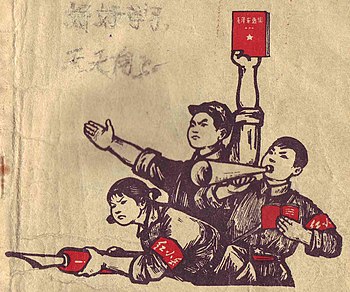
Supporters of a national constitutional convention, as provided for in Article V of the US Constitution, have gained the support of 27 state legislatures for the idea. They need 34.
Republicans and Democrats are at war both with each other and within their own parties over the proposal. Some Republicans want such a convention for the purpose of getting a “balanced budget” amendment.
Some Democrats also want a convention for the purpose of overturning the US Supreme Court’s Citizens United ruling and regulating political campaign spending.
Some members of both parties fear that a convention might get out of hand, producing unforeseen results. History says these Cassandras are correct.
In May of 1787, delegates from 12 of the 13 states met in Philadelphia to propose amendments to the young nation’s Articles of Confederation. With Rhode Island boycotting and the Articles requiring ratification by all 13 states to amend, the idea looked dead on arrival.
But the Philadelphia convention was, in essence, the first stage of a coup d’etat. Instead of proposing amendments for unanimous consent, the delegates rolled out plans to abandon the Articles for an entirely new system of government, peremptorily re-setting the bar for their new “Constitution.” It would, they announced, become effective upon ratification by only nine states.
For better or worse, they pulled it off. The US Constitution has been “the supreme law of the land” since 1789.
A new constitutional convention is a bad idea for two reasons, both rooted in our history.
The first reason, as outlined above, is that regardless of the reasons for calling such a convention, it would likely end up recommending amendments above and beyond — or contrary to — those its promoters contemplate. It could even go rogue, as Philadelphia’s cabal did.
The second reason is that, just as the existing Constitution is more honored in the breach than in the observance, any amendments moved by a new convention and ratified by the states would be similarly treated. New government powers created by the new amendments would be vigorously used. New limits on government power so created would simply be ignored.
We don’t need a balanced budget amendment. If Congress wanted to balance the budget, it would do so. If the Constitution requires it to do so and forbids it to borrow money, the politicians will find a way. There will likely be an exception for times of war, so they’ll just declare war and never undeclare it. Or they’ll just print money and give it to themselves to spend, inflating the money in our pockets as a hidden tax.
As far as money in politics is concerned, there’s no chance whatsoever of reining that in. Money always finds open wallets to worm its way into, constitutions and laws notwithstanding.
If the promoters of a constitutional convention place so much importance on the US Constitution, perhaps they should turn their attention to making America’s politicians obey it as it exists. That would be a good start toward meaningful change.
Thomas L. Knapp is director and senior news analyst at the William Lloyd Garrison Center for Libertarian Advocacy Journalism (thegarrisoncenter.org). He lives and works in north central Florida.
AUDIO VERSION
- “Constitutional Convention: A Dangerous and Unnecessary Game,” by Thomas L. Knapp, River Cities’ [Iowa] Reader, 04/09/15
- “Constitutional Convention: A dangerous and unnecessary game,” by Thomas L. Knapp, Provo, Utah Daily Herald, 04/11/15
- “Constitutional Convention: A dangerous and unnecessary game,” by Thomas L. Knapp, Batesville, Arkansas Daily Guard (paywall), 04/10/15
- “Constitutional convention unnecessary,” by Thomas L. Knapp, University of New Mexico Daily Lobo, p. 4, 04/14/15
- “Constitutional Convention — A Dangerous And Unnecessary Game,” by Thomas L. Knapp, Iowa Free Press, 04/13/15
- “Constitutional convention dangerous and unnecessary,” by Thomas L. Knapp, Lancaster, South Carolina News, 04/16/15
- “A dangerous and unnecessary game,” by Thomas L. Knapp, Winnsboro, South Carolina Herald Independent, 04/25/15
- “A dangerous and unnecessary game,” by Thomas L. Knapp, Newberry, South Carolina Observer, 04/25/15


